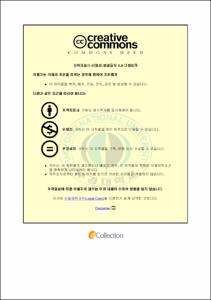영어 동요를 활용한 영어 학습이 학습자의 어휘력 향상과 정의적 영역에 미치는 영향
- Abstract
- The effects of teaching English by using children's English songs
on vocabulary acquisition and affective domain.
Jeeyoung Lee
Graduate School of Education
Pukyoung National University
Abstract
This study was carried out to investigate the effects of teaching English by using children's English songs not only on vocabulary acquisition, but also on the student's affective factors. Research questions on the theme of this research are as follows: First, what effect does teaching English by using children's English songs on vocabulary acquisition? Second, what effect does teaching English by using children's English songs on learner's Affective domain?
The study involved two third grade classes (sixty students), an experimental and control class, who were observed once twice a week over twelve weeks in an extracurricular hour. One class learned English vocabulary using children's English song, the other class learned English vocabulary using flash cards. To perform this study, children's English songs were selected from many kinds of books.
The results of this study are as follows: First, there are meaningful results on learner's vocabulary ability from learning English through children's English songs. The results of the vocabulary test showed that the enhancement of the learners's vocabulary was statistically significant. Second, teaching English through children's English songs improved the student's interests, motivation and security in English. The results of questionnaires on learner's motivation for and attitudes toward English learning showed that number of students who wanted to command English well increased and that their interest in English learning also increased.
On the basis of these results the followings are suggested:
First, we need to find a more advanced and various materials of children's English songs. Second, the elementary school students needed the opportunity to learn English song by using Korean songs. If students sing a English song which is translated from a Korean song, student get to easily know the meaning of the song, and they will find the song attractive. Third, we need to analyze effects of teaching English through children's English songs on vocabulary in the long term. Fourth, teaching English through children's English songs on vocabulary need to be developed and applied in the other level learners.
- Issued Date
- 2012
- Awarded Date
- 2012. 2
- Type
- Dissertation
- Publisher
- 부경대학교 교육대학원
- Alternative Author(s)
- Lee, Jee Young
- Department
- 교육대학원 초등영어교육전공
- Advisor
- 배재덕
- Table Of Contents
- 목 차
Abstract ⅳ
I. 서론 1
1.1 연구의 필요성 및 목적 1
1.2 연구 과제 2
1.3 연구의 제한점 3
II. 이론적 배경 4
2.1 어휘 교육 4
2.2 노래를 통한 영어 교육 9
2.3 선행 연구 15
III. 연구 내용 및 방법 19
3.1 연구 참여자 19
3.2 연구 기간 및 절차 19
3.3 실험 설계 20
3.4 연구 도구 26
3.5 자료 분석 28
IV. 연구의 결과 및 해석 30
4.1 실태 조사 설문지 결과 30
4.2 사전 동질성 검증 35
4.3. 사후 점수 비교 36
V. 결론 및 제언 39
5.1 결론 39
5.2 제언 40
참고문헌 42
실험에 선정된 노래 가사 44
실험반 수업안 47
통제반 수업안 49
아동 실태 조사지 51
어휘력 평가지 52
정의적 영역 검사지 55
- Degree
- Master
- Files in This Item:
-
-
Download
 영어 동요를 활용한 영어 학습이 학습자의 어휘력 향상과 정의적 영역에 미치는 영향.pdf
기타 데이터 / 782.45 kB / Adobe PDF
영어 동요를 활용한 영어 학습이 학습자의 어휘력 향상과 정의적 영역에 미치는 영향.pdf
기타 데이터 / 782.45 kB / Adobe PDF
-
Items in Repository are protected by copyright, with all rights reserved, unless otherwise indicated.